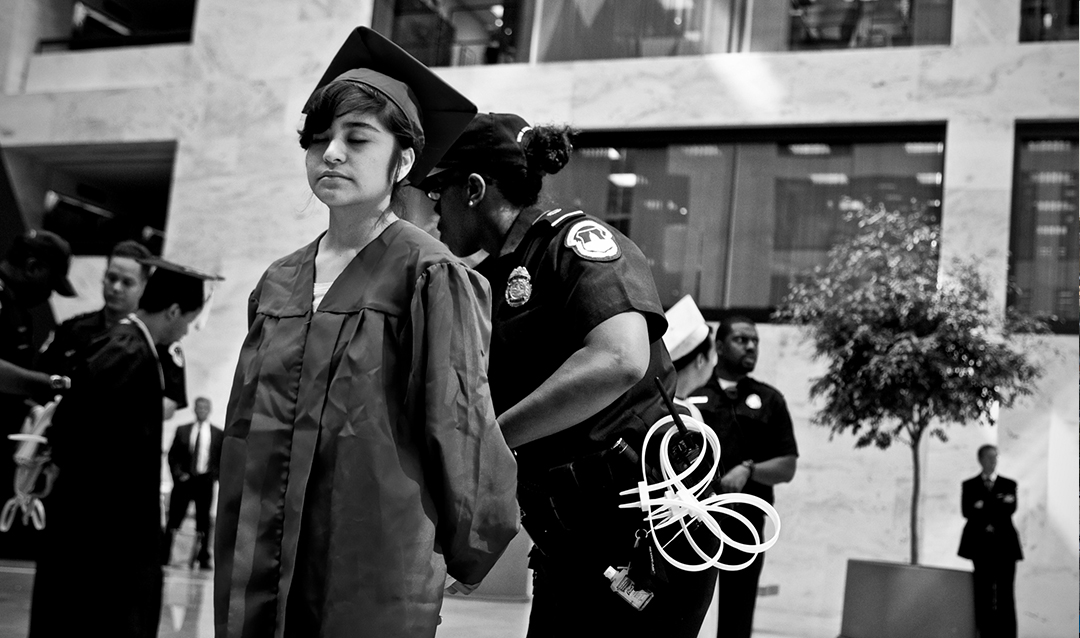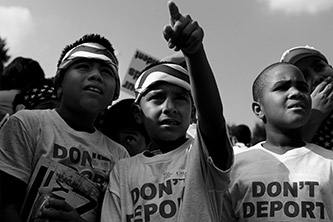By the time Cadenas was in high school, Arizona had become ground zero in the U.S. immigration debate, with deputy sheriffs swarming neighborhoods in search of undocumented immigrants and activists rallying for immigrant rights.
“As a teenager trying to figure out the world and figure out who I was, my identity, knowing that there was a sheriff out there who was rounding up people like me. … We were really scared of this, and that made our lives very, very stressful,” he says. “It was anxiety-provoking to be in the car, not knowing if you were going to be detained by the police. My parents were working multiple jobs, they were working at night, and we would worry about them.”
Once in college, Cadenas decided to step out of the shadows. He began advocating for the DREAM (Development, Relief and Education for Alien Minors) Act, a bill that would have provided a path to citizenship for undocumented immigrants brought to the U.S. as children.
“That process of becoming involved in advocacy, and pushing against discrimination and really oppressive laws and policies, was really empowering for me,” says Cadenas. “It completely transformed my life.”
In a study published in Cultural Diversity & Ethnic Minority Psychology, Cadenas and co-authors Bianca L. Bernstein and Terence J. G. Tracey of Arizona State University examined the development of immigrant students’ critical consciousness—how they apply critical thinking skills to understand their situation and take action to find solutions to their problems—and the impact on college outcomes.
“Critical Consciousness and Intent to Persist Through College in DACA and U.S. Citizen Students: The Role of Immigration Status, Race and Ethnicity” is believed to be the first study to explore the link between the development of critical consciousness and Hispanic DACA (Deferred Action for Childhood Arrivals) students’ intent to persist at public universities.
“I wanted to understand how immigrant students are surviving in this climate of anti-immigrant policy,” Cadenas says. “If we can understand it, we can do a better job systemically through education and programs, supporting the students, students who were like me.”
The researchers integrated social cognitive career theory, or how people develop and realize their academic and career choices, with critical consciousness. Using multi-group structural equation modeling, they gathered and analyzed data from 368 undergraduates, including undocumented students. Participants completed scales on their intent to stay in college and graduate, political self-efficacy, and support for, and barriers to, critical action.
“A main takeaway is that undocumented students who have higher levels of critical consciousness develop higher political self-efficacy and political outcome expectations,” Cadenas says. “And so, they become more efficacious in their perceived ability to tackle oppression and to tackle discrimination. They expect that their efforts will be worthwhile.”
Cadenas says it’s “actually a protective factor” for marginalized students to have a higher sense of critical consciousness, as they have to analyze structural barriers (ineligibility for federal financial aid and the like) just to be able to get into college, and then navigate it. “This is something that is really positive, because it helps them stay in school and eventually graduate.”






